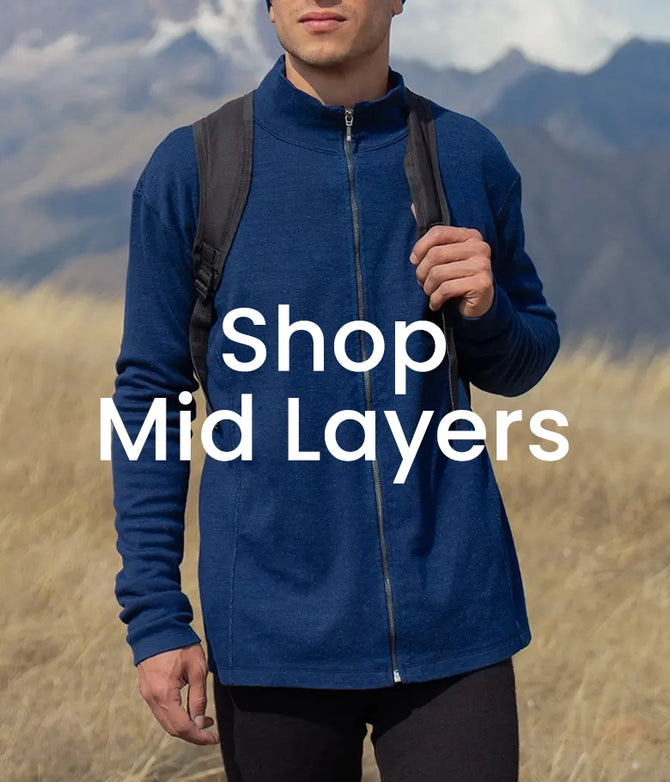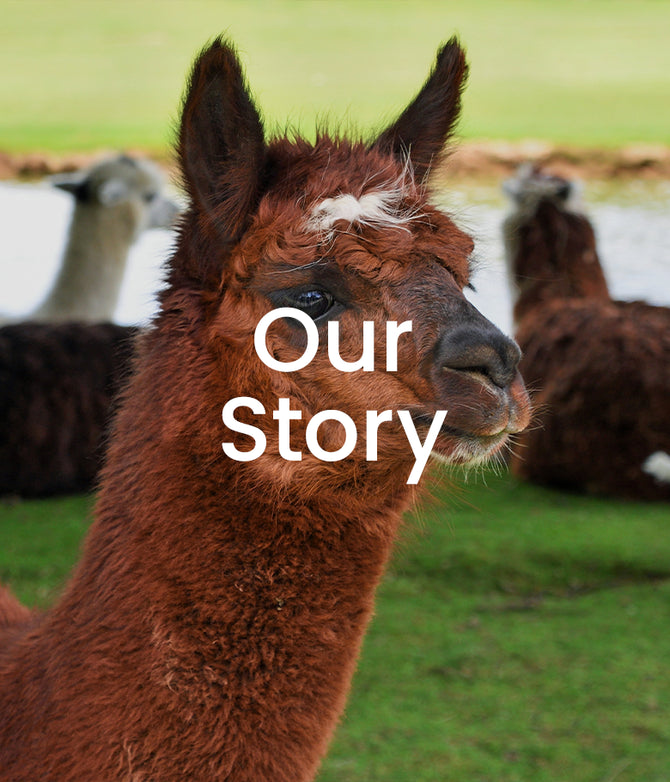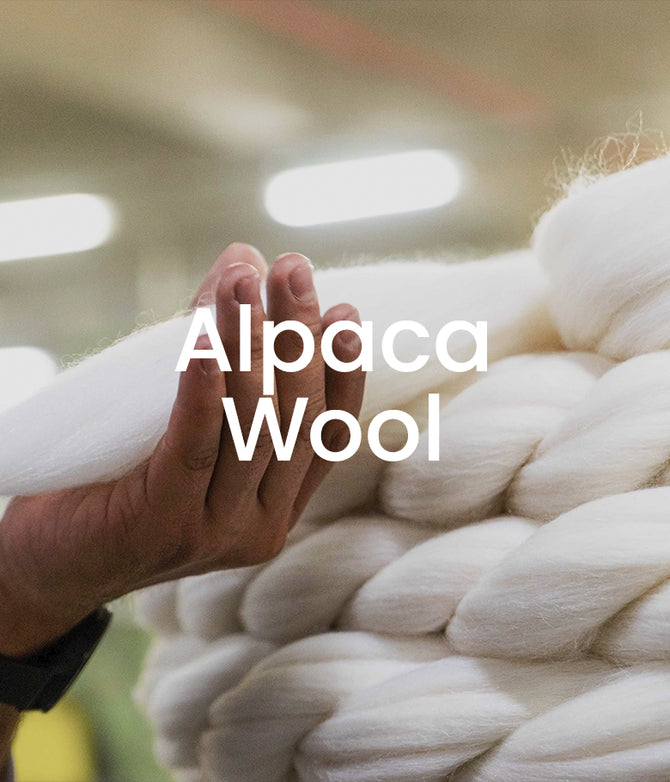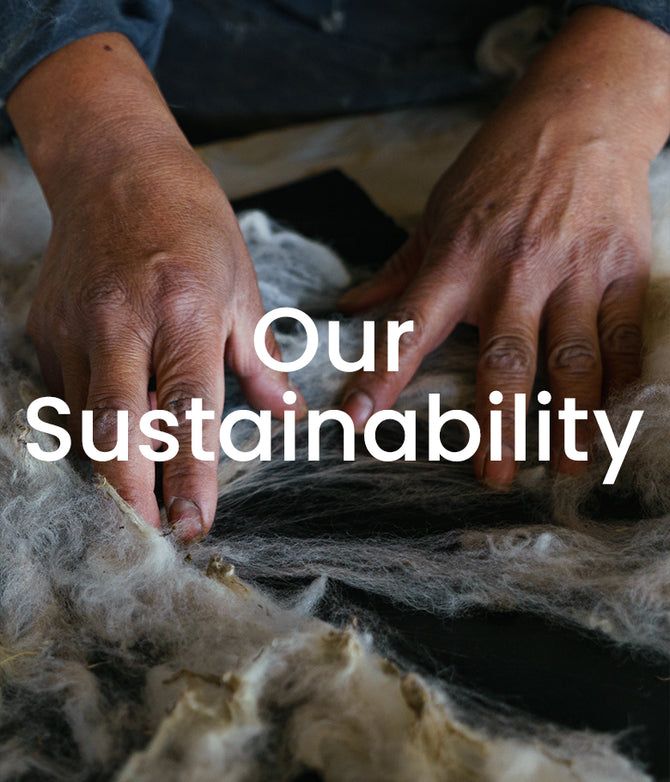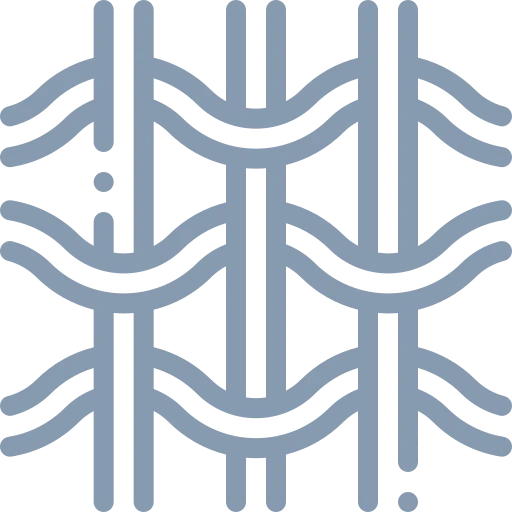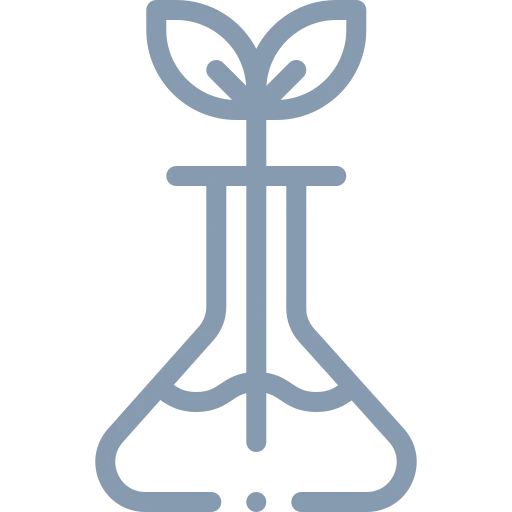REAL SUSTAINABILITY
Our Natural Dye fabrics go the next step in making the most sustainable clothes:
* Zips are not 100% biodegradable yet, but we are developing eco-friendly alternatives.
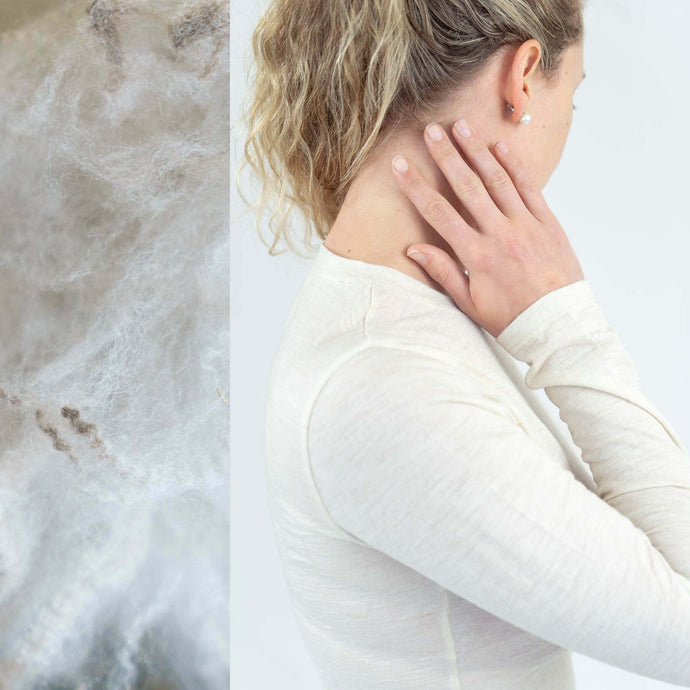
OUR COLORS
Alpaca
Natural White
There are 22 natural colors of alpaca wool, and white is one of them. We don't dye our Natural White garments, so you'll wear Alpaca Wool just like alpacas do!
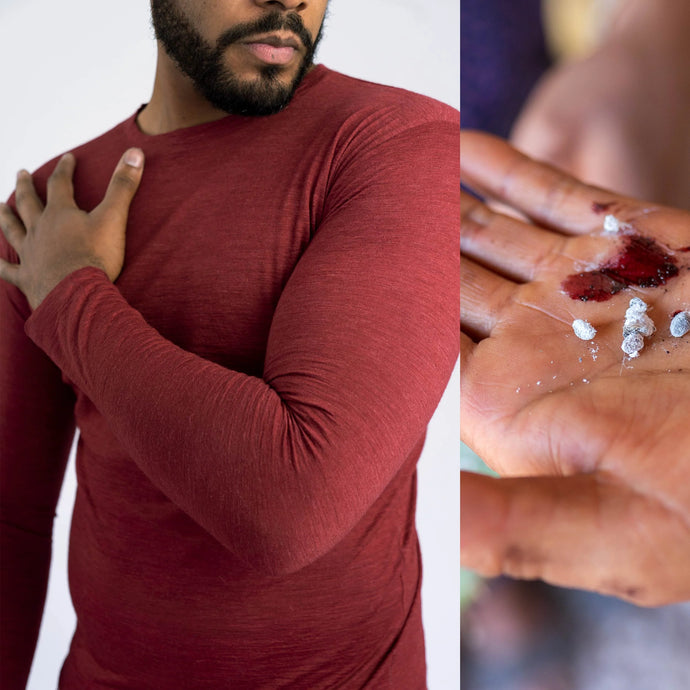
OUR COLORS
Cochineal
Natural Red
Cochineal scale insects are bugs that live on cactus plants and have been used for dyeing textiles for at least 1,500 years, by ancient civilizations throughout Latin America. It is prized for being the most vibrant colorant available in nature.
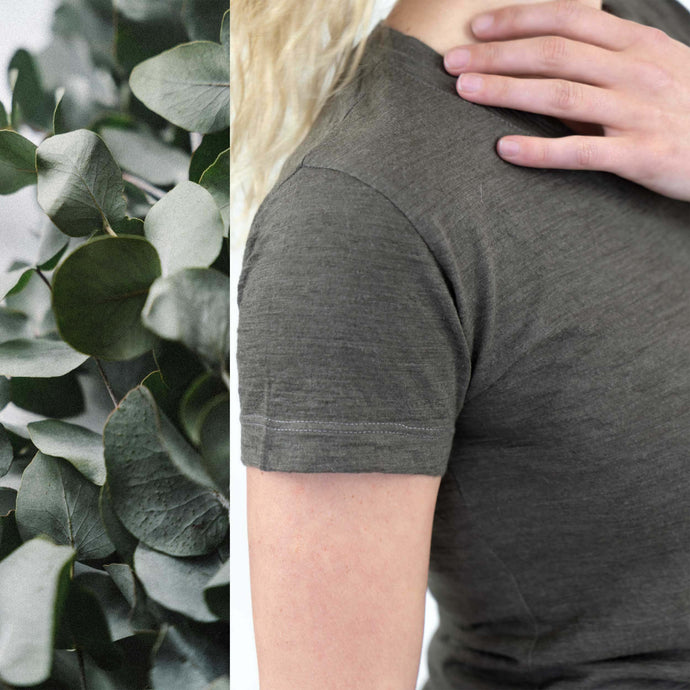
OUR COLORS
Eucalyptus
Natural Gray
Eucalyptus originated in Australia but loves the Peruvian Andes as much as we do! You might know it's good for soothing a cold, but it makes a great natural dye. All parts of eucalyptus contain pigments, producing a wide variety of colors.
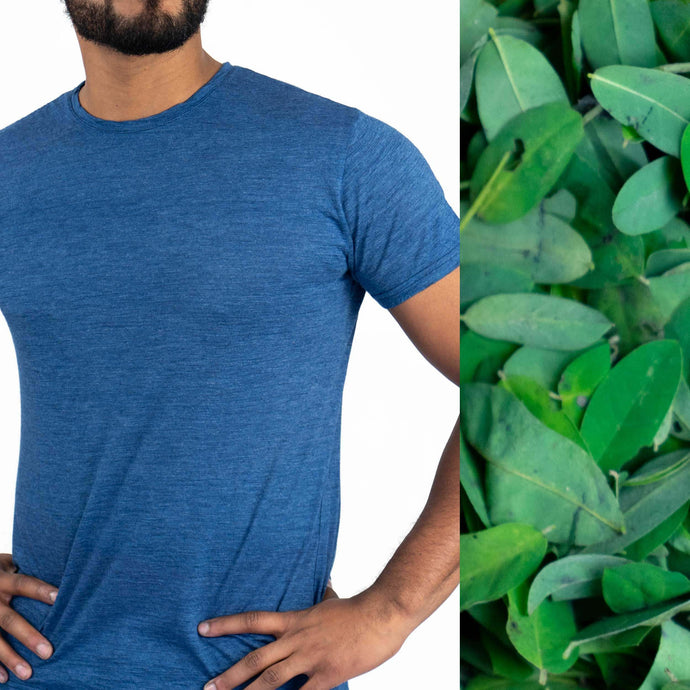
OUR COLORS
Indigo
Natural Blue
The oldest known textile (6,000 years old) dyed with Indigofera was found in Peru. Natural indigo creates a deep blue shade and is anti-bacterial, for added freshness.
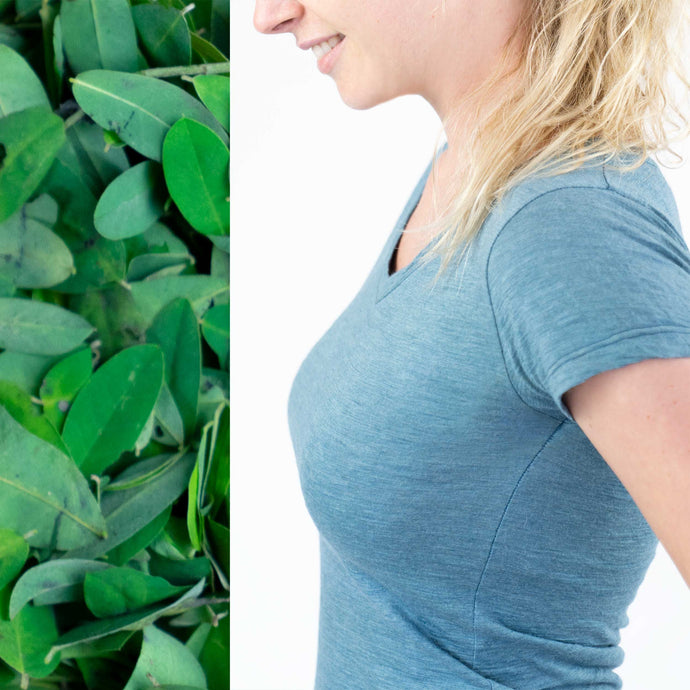
OUR COLORS
Indigo + Molle
Natural Turquoise
When Indigofera is mixed with Schinus Molle, a tree native to the Andes, the color changes from indigo blue to bright turquoise.
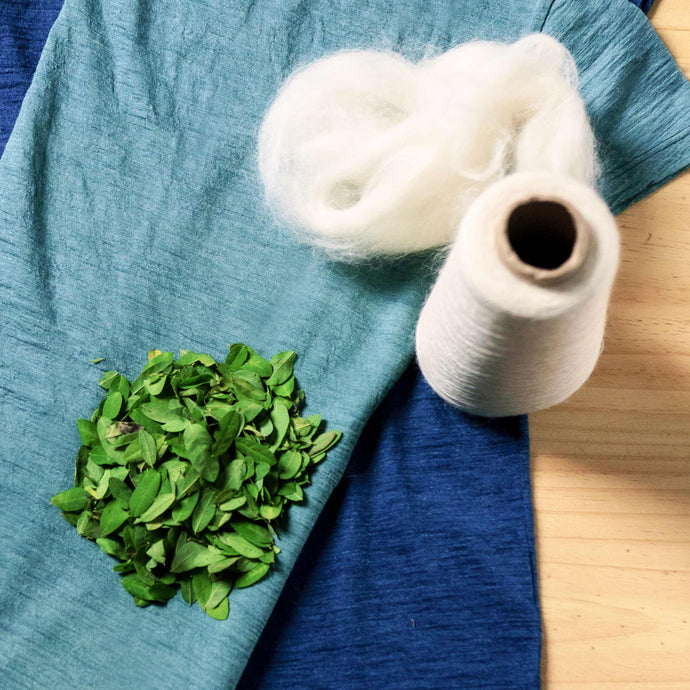
RECOMMENDATIONS
Shop Leave No Trace apparel
Search for the Natural label next to color variants to identify our 100% biodegradable items from the Leave No Trace Apparel Collection.
Natural colors can bleed a little, so we recommend using them with dark clothing & equipment, especially if the garments are new.
Garments in our natural color line are hand-dyed, so the exact shade of your item is totally unique. Natural dyes may show some unevenness in coloring, but this is how nature works. We choose natural colors as they biodegrade without leaching toxic compounds into the environment.




